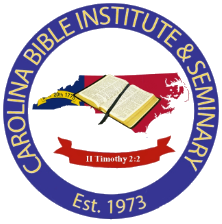NEW TESTAMENT SURVEY OVERVIEW
The “New Testament Survey” course is a comprehensive exploration of the books and themes within the New Testament of the Bible. This course aims to provide students with a foundational understanding of the historical, literary, and theological dimensions of the New Testament. Through a chronological examination of the Gospels, Acts, Pauline Epistles, General Epistles, and Revelation, students will gain insights into the diverse voices, cultural contexts, and theological messages that form the basis of Christian beliefs and practices.

Closeup of an old Holy Bible opened to the famous verse of John 3:16 and highlighted by a beam of light. Book on a rustic wooden table with deliberate focus on the verse with shallow depth of field on background. This translation is King James, which is public domain.
This course is designed to provide students with a holistic understanding of the New Testament, equipping them with the knowledge and tools to interpret, apply, and appreciate the diverse teachings within the foundational texts of the Christian faith.
DETAILS
- Exegetical Paper:
- Write an exegetical paper on a selected passage from one of the New Testament books, demonstrating proficiency in biblical interpretation.
- Gospel Synthesis Project:
- Develop a synthesis project that integrates the teachings and narratives of the Synoptic Gospels, highlighting commonalities and distinctive features.
- Pauline Theology Presentation:
- Deliver a presentation on a specific aspect of Pauline theology, showcasing an in-depth understanding of the theological themes within Paul’s letters.
- General Epistles Reflections:
- Write reflections on key themes and teachings found in the General Epistles, emphasizing their relevance to contemporary Christian living.
- Revelation Seminar:
- Participate in a seminar focused on the Book of Revelation, engaging in discussions on its interpretive challenges, theological implications, and applications for the church today.
- New Testament Timeline Assignment:
- Create a timeline that charts the historical and chronological development of events and writings within the New Testament.
- Final Comprehensive Exam:
- Take a comprehensive exam that assesses knowledge of key concepts, themes, and events covered throughout the course.
- Class Participation:
- Actively engage in class discussions, contributing insights, questions, and reflections on the material covered in the New Testament Survey.
CURRICULUM
- Introduction to the New Testament:
- Establish a foundational understanding of the New Testament, its historical context, and its significance within the broader Christian faith.
- Synoptic Gospels:
- Explore the Gospels of Matthew, Mark, and Luke, emphasizing their unique perspectives, theological emphases, and contributions to the portrait of Jesus Christ.
- Gospel of John and Acts:
- Delve into the Gospel of John, examining its distinctive themes, and transition to the Book of Acts, exploring the early history of the Christian Church.
- Pauline Epistles:
- Study the letters of the Apostle Paul, including Romans, Corinthians, Galatians, Ephesians, Philippians, Colossians, Thessalonians, Timothy, Titus, and Philemon, understanding their theological content and pastoral application.
- General Epistles:
- Examine the General Epistles, including James, Peter, John, and Jude, exploring their unique perspectives on Christian living, ethics, and doctrinal insights.
- Apocalyptic Literature:
- Investigate the Book of Revelation, focusing on its apocalyptic imagery, theological messages, and relevance to the early Christian community.
PREREQUISITES
- Foundational Biblical Studies:
- Completion of foundational courses in biblical studies to ensure students have a basic understanding of the structure, themes, and content of the Old Testament.
- Introduction to Christian Theology:
- Proficiency in basic theological concepts to provide a framework for understanding the theological themes presented in the New Testament.
- Biblical Hermeneutics:
- Familiarity with principles of biblical hermeneutics (interpretation) to facilitate a deeper engagement with the texts studied in the New Testament Survey.
- Old Testament Survey (Recommended):
- While not mandatory, completion of an Old Testament Survey course is recommended to provide a broader biblical context and enhance the understanding of connections between the Old and New Testaments.
- Basic Greek Language (Optional):
- While not mandatory, a basic understanding of the Greek language can enhance the student’s ability to engage with the original language of the New Testament texts.
- Introduction to Christian History:
- Background in Christian history to understand the historical context in which the New Testament writings emerged and the early Christian community developed.
- Research and Writing Skills:
- Proficiency in research and writing skills, as students will be required to complete assignments that involve exegetical papers, presentations, and reflections.
- Class Participation Skills:
- Ability to actively engage in class discussions, share insights, and contribute meaningfully to discussions about the New Testament texts and themes.








